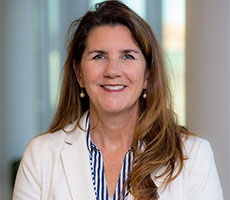____
Inclusive partnershipResearch and Innovation
National leaders in practice-based, community participatory, and practice redesign and improvement research.

Jodi Holtrop, PhD, MCHES
Vice Chair for Research
Welcome to the Department of Family Medicine - Research & Innovation.
Our research mission is simple: To improve community health and well-being through high-quality research in patient-centered family medicine using holistic and integrative models of health.
We are innovators and experts in the discovery and dissemination of new knowledge through translational and practice-based research.
We serve as the primary resource for family medicine practices, by providing knowledge, health information technology and practice transformation tools and guidance to satisfy the Quadruple Aim of improving the health of populations, enhancing the experience of care for individuals, reducing the per capita cost of health care, and attaining joy in work.
We continuously push to expand the reach of our practice-based research networks to more effectively support practices, share information, develop and sustain a dynamic learning community and bring value to our stakeholders by answering their questions.
We are here for you, your community, and your health.
RESEARCH HIGHLIGHT
Health Equity Research
____
Attention to DEIA in team composition____
Authentic community engagement____
Need for continuous growth, learning, self-reflection____
Moving from documenting to dismantling health inequities____
Use of appropriate theoretical models and frameworks, such as a public health critical race praxis
____
A proactive, comprehensive, and continuous appraisal of how equity may disproportionately affect oppressed people
Contact:
Jodi Holtrop, PhD, MCHES
Vice Chair for Research
jodi.holtrop@cuanschutz.edu
Carlee Kreisel, MPH
Research Services Specialist
carlee.kreisel@cuanschutz.edu
(For website updates)
